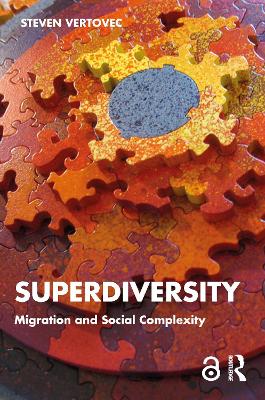Key Ideas
2 total works
'Transnationalism' refers to multiple ties and interactions linking people or institutions across the borders of nation-states.
This book surveys the broader meanings of transnationalism within the study of globalization before concentrating on migrant transnational practices. Each chapter demonstrates ways in which new and contemporary transnational practices of migrants are fundamentally transforming social, political and economic structures simultaneously within homelands and places of settlement.
Transnationalism provides a much-needed single, clear and condensed text concerning a major concept in academic and policy discourse today.
The book is for advanced undergraduate students, postgraduates and academics.
Superdiversity explores processes of diversification and the complex, emergent social configurations that now supersede prior forms of diversity in societies around the world. Migration plays a key role in these processes, bringing changes not just in social, cultural, religious, and linguistic phenomena, but also in the ways that these phenomena combine with others like gender, age, and legal status.
The concept of superdiversity has been adopted by scholars across the social sciences in order to address a variety of forms, modes, and outcomes of diversification. Central to this field is the relationship between social categorization and social organization, including stratification and inequality. Increasingly complex categories of social “difference” have significant impacts across scales, from entire societies to individual identities. While diversification is often met with simplifying stereotypes, threat narratives, and expressions of antagonism, superdiversity encourages a perspective on difference as comprising multiple social processes, flexible collective meanings, and overlapping personal and group identities. A superdiversity approach encourages the re-evaluation and recognition of social categories as multidimensional, unfixed, and porous as opposed to views based on hardened, one-dimensional thinking about groups. Diversification and increasing social complexity are bound to continue, if not intensify, in light of climate change. This will have profound impacts on the nature of global migration, social relations, and inequalities.
Superdiversity presents a convincing case for recognizing new social formations created by changing migration patterns and calls for a re-thinking of public policy and social scientific approaches to social difference. This introduction to the multidisciplinary concept of superdiversity will be of considerable interest to students and researchers in a range of fields in the humanities and social sciences.
The Open Access version of this book, available at www.taylorfrancis.com, has been made available under a Creative Commons Attribution-Non Commercial-No Derivatives 4.0 license.

